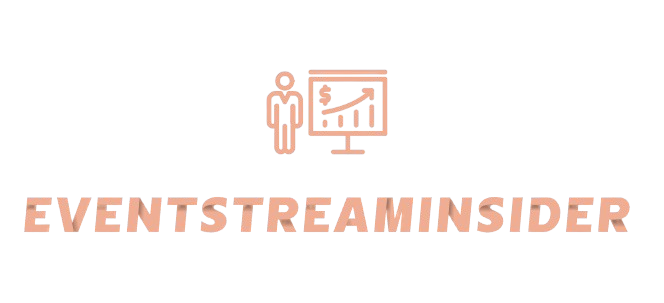
Mastering Content Creation for a B2B Podcast: Strategies for Engaging and Growing Your Audience
Podcasting has rapidly become one of the most powerful content marketing tools in the B2B world. With its ability to build trust, showcase expertise, and nurture long-term relationships, a well-executed B2B podcast can deliver significant ROI. However, launching a podcast is only half the battle—the true challenge lies in consistent, strategic content creation that resonates with your business audience.
This article explores how to craft compelling B2B podcast content, from planning and production to promotion, with actionable strategies to help you build authority and expand your reach.
Know Your Audience Inside Out
Before hitting the record button, it’s essential to understand who you’re talking to. In B2B podcasting, your listeners are often decision-makers, managers, or professionals seeking value-driven content that helps them solve problems, learn industry trends, or improve performance.

To create relevant content:
- Define your ideal listener (e.g., CIOs of mid-size tech firms).
- Conduct surveys, LinkedIn polls, or client interviews.
- Analyze what content performs well on your blog, social media, or email campaigns.
- Use SEO tools to identify the topics your audience is searching for.
A clear picture of your audience will guide everything from topic selection to the tone of your episodes.
Focus on Thought Leadership, Not Sales Pitches
The golden rule of B2B podcast content is: educate, don’t sell. Listeners tune in to gain insights—not to hear a sales pitch.
Good B2B podcast content:
- Offers actionable advice or frameworks.
- Features thought leaders with genuine insights.
- Tackles current challenges or industry shifts.
- Encourages critical thinking and sparks conversation.
Position your podcast as a source of trusted knowledge. Over time, this builds credibility and nurtures leads organically.
Plan a Content Calendar With a Clear Strategy
Consistency is crucial for building and retaining an audience. A structured content calendar helps you avoid last-minute scrambles and ensures your topics align with broader business goals.
To build your content calendar:
- Choose a release schedule (e.g., weekly, biweekly).
- Identify key themes based on your content pillars.
- Mix formats: solo episodes, guest interviews, panel discussions, case studies, Q&As.
- Align topics with industry events, product launches, or seasonal trends.
A quarterly planning session can help ensure your podcast supports marketing and sales initiatives.
Book High-Quality, Relevant Guests
In the B2B space, guest interviews are often the most valuable content. Bringing in C-suite leaders, successful clients, or influential voices can boost credibility and expand your reach.
To secure top-tier guests:
- Leverage your professional network.
- Reach out with a clear value proposition.
- Use platforms like LinkedIn or match-making tools for podcast guests.
- Prepare tailored questions that encourage storytelling and deep dives.
Before recording, brief your guests to ensure they understand the audience and podcast tone. A smooth guest experience can also lead to future partnerships or referrals.
Structure Each Episode With Purpose
Unlike casual entertainment podcasts, B2B listeners often value structure and efficiency. Keep episodes focused, well-paced, and valuable.
A solid structure includes:
- Hook (first 30 seconds): Explain what the listener will gain.
- Introduction: Briefly introduce yourself and the guest.
- Main content: Dive into the topic with clear transitions.
- Key takeaways: Summarize insights or tips.
- Call to action: Direct listeners to a website, newsletter, or next step.
Stick to a consistent length—usually 20 to 40 minutes for B2B content. Long enough to deliver value, short enough to fit a commute.
Repurpose Podcast Content for Maximum ROI
Podcast content is incredibly versatile. Each episode can fuel multiple content types across your digital ecosystem.
Ways to repurpose podcast content:
- Blog articles: Transcribe and rewrite key segments into blog posts.
- Social media: Pull out quotes, audiograms, or short clips.
- Email marketing: Feature episodes in your newsletter.
- Webinars and lead magnets: Expand popular topics into full presentations.
- SEO: Optimize transcripts for keyword-rich web pages.
This approach saves time and ensures your content reaches different audience segments through their preferred channels.
Promote Strategically Across Channels
Great content needs visibility to have impact. B2B podcast promotion should be multi-channel and targeted.

Tactics include:
- Posting on LinkedIn, where professional audiences are most active.
- Collaborating with guests to share the episode with their network.
- Embedding episodes on your website or blog.
- Creating highlight reels or teasers for YouTube and Instagram.
- Running email campaigns to your subscriber list.
For more reach, consider podcast directories like Apple Podcasts, Spotify, and industry-specific platforms. Paid ads on LinkedIn or niche newsletters can also drive traffic to episodes with high-value guests or topics.
Track Metrics and Optimize Over Time
Use data to refine your approach and increase engagement. Key podcast metrics to track include:
- Downloads and listens per episode.
- Listener retention (how long people stay tuned in).
- Click-throughs on calls-to-action.
- Social shares and comments.
- Lead conversions from podcast-related campaigns.
Regularly review performance and test new formats, titles, and topics. Invite feedback directly from your audience to guide improvements.
Conclusion
Creating content for a B2B podcast isn’t just about filling airtime—it’s about delivering value in a format that builds authority and trust. By knowing your audience, planning strategically, featuring compelling guests, and repurposing across channels, your podcast can become a cornerstone of your content marketing strategy.
The key to success lies in consistency, authenticity, and continuous learning. When done right, B2B podcasting doesn’t just entertain—it educates, influences, and drives meaningful business outcomes.



